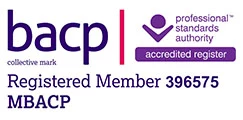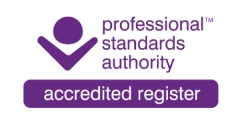
How do I choose the right therapist for my child?
Once you've made the decision to seek therapeutic support for your child, the next step is finding the right person to help them. It can be challenging to know which therapist to approach and who will be the best fit for your child's needs.
Before choosing a therapist, it's important to consider the type of therapy that would be most beneficial. There are various options available, each with its own advantages. Once you have an idea of the therapy type you're interested in, you can start looking into therapists who specialize in that area.
While anyone can refer to themselves as a therapist, it's crucial to seek support from someone who has received proper training and is registered with a recognized regulatory body. Regulatory bodies ensure that therapists adhere to a code of ethics and have the necessary qualifications.
Why therapeutic relationship is important?
Now, let's delve into the importance of the therapeutic relationship, also known as the therapeutic alliance. This relationship between the therapist and the client, in this case your child, is crucial for successful therapy. It's essential for both you and your child to feel comfortable with the chosen therapist.
Therapy can sometimes place the child in a vulnerable position, even if it doesn't always involve sharing specific details of their difficulties. The exploration of emotions in therapy can be uneasy and even intimidating. However, with the right therapist match, this process can feel much more manageable and your child will feel safe expressing their emotions.
If the therapeutic relationship doesn't feel right, it may hinder the exploration of these emotions or cause your child to hold back from addressing their difficulties. This can prevent effective processing and healing from taking place.
In summary, finding the right therapist for your child involves considering the therapy type, ensuring the therapist has appropriate training and is registered with a regulatory body, and prioritizing the establishment of a positive and comfortable therapeutic alliance.
What qualities should you look for in a therapist?
Well, a therapist should have a warm and friendly approach, making your child feel accepted and understood in their struggles. It's important for the therapist to be non-judgmental, creating a safe space where your child feels comfortable expressing themselves.
Remember, therapy should always be child-led, meaning that the sessions should revolve around your child's needs and progress. The therapist should respect your child's pace and not push them according to their own agenda. To get a better sense of their approach, feel free to ask the therapist how they navigate therapy and support the child throughout the therapeutic process. This way, you can determine if they're the right fit for your child.
It's worth noting that a therapist shouldn't claim to have a magical solution to "fix" the problem. Therapy is designed to support your child in working through their trauma or emotional difficulties. It provides a safe and nurturing environment for them to embark on this healing journey. Keep in mind that therapy is a process that takes time and commitment. Be cautious if a therapist guarantees a complete resolution of the difficulty. The true resolution comes from your child's own work in the sessions, with the therapist acting as a guide and facilitator. The goal is to bring about effective change, but there are no absolute guarantees.
Ultimately, look for a therapist who embodies these qualities and respects the individuality of your child's therapeutic journey.
What type of therapy would be best for your child?
Well, it depends on what you're looking for. One great option is play therapy, which utilizes a child's natural mode of communication: play. It's a non-directive form of therapy where the child leads the process, and they don't necessarily have to use words to express themselves. This can be particularly helpful since sometimes even adults struggle to articulate their emotions clearly. If you'd like more information on play therapy, you can check out our post on "What is play therapy?"
Art therapy is similar to play therapy in that it doesn't rely on verbal expression. Instead, art is used as a medium to help children explore their thoughts, feelings, and emotions. Similarly, music therapy taps into our innate connection with music to support clients on their therapeutic journey.
Cognitive Behavioral Therapy (CBT) is a commonly used form of therapy for anxiety and low mood, but it may be more suitable for older children. It's a talking therapy that provides tools to manage thoughts and feelings, though younger children may find it challenging to implement the learned strategies when needed.
Counseling is another talking therapy delivered by trained therapists who aim to explore thoughts and emotions through verbal communication. It can be effective for children who are able to articulate their thoughts and feelings, but younger children might face difficulties accessing this type of therapy. In such cases, counseling may incorporate play and art as part of its approach.
Animal-assisted therapy is also gaining interest. It often complements other therapeutic interventions by involving animals, such as horses, dogs, cats, or even pigs, to bring a sense of calm to the client.
Now, why is it important to choose someone on a register? Well, selecting a registered therapist provides certain assurances. Different therapies have their own registering bodies, such as Play Therapy UK, the Health Care Professionals Council (HCPC), or the British Association for Counselling and Psychotherapy (BACP). A registered therapist's practice is overseen, and they adhere to a code of ethics. Should any concerns arise, you have a place to report them, although we hope you won't need to. The registration process ensures that therapists meet specific criteria and have received appropriate training, giving you confidence in their qualifications.
What register should I look on?
Play Therapy
https://www.bapt.info/register/
https://playtherapyregister.org.uk/
Art Therapy
https://baat.org/find-an-art-therapist/
Counselling
https://www.bacp.co.uk/about-us/protecting-the-public/bacp-register/
Music Therapy
https://www.bamt.org/british-association-for-music-therapy-resources/find-a-therapist.html
Drama Therapy
https://www.badth.org.uk/find-a-therapist
Now that you've checked the register and found potential therapists, you may discover several options in your area or just a few. Take the opportunity to explore their websites if available or reach out to them directly. Speaking with them will give you a sense of who they are and help you determine if they're the right person for the job. Choosing a therapist for your child is an important decision, so it's crucial to find the right fit.
Keep in mind that therapists often have waiting lists. You'll need to consider if your child can wait for the intervention or if starting with a therapist who is a bit further away, even if not the ideal option, would be acceptable to begin sooner. Sometimes, seeking support happens during a time of crisis, and it's understandable that you may prefer immediate assistance. Take the time to weigh your options and decide what works best for your family.
Discuss fees and session commitments with the therapist. Talk to them about the anticipated number of sessions and any concerns or potential scheduling barriers you foresee. Open communication will help ensure a smooth process and address any logistical issues from the start.
Now, what can you expect once you've found a therapist and set up the therapy? Don't expect to receive extensive information about the sessions themselves, as therapists typically maintain confidentiality. It's important to commit to taking your child to every session for consistency and progress. Be prepared for some changes in behavior and potential challenges along the way; your child might resist attending a session or two. Keep an eye out for our upcoming "Guide to supporting your child in therapy" post, which will provide valuable insights.
Best of luck in your search for the right therapist for your child. We understand that it can be a daunting task, but we hope this guide has made it a little easier for you. Remember, you're taking an important step toward supporting your child's well-being.





